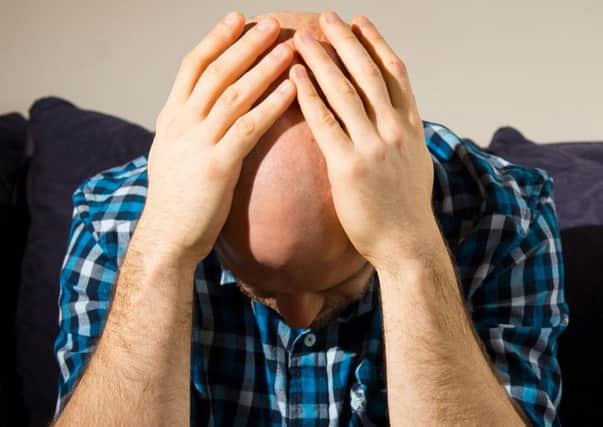Suicide rate increases in Hartlepool '“ despite lower rates across the country


Mental health charity Samaritans welcomed the national decrease in suicides, but said that “one death by suicide is still one too many”.
Figures from the Office for National Statistics show that there were 28 suicides in Hartlepool between 2015 and 2017, at a rate of 11.3 deaths per 100,000 people.
Advertisement
Hide AdAdvertisement
Hide AdLocal rates are measured over a three-year period. Between 2012 and 2014, there were 10 suicides registered per 100,000 people.
The rate over the last three years was higher than that across the North East as a whole, where 10.8 suicides were registered per 100,000 people.
Last year alone, there were eight suicides in Hartlepool.
Of 5,821 suicides registered last year 4,382 were men, a rate of 15.5 deaths per 100,000 men. However, the male suicide rate was at its lowest level on record in 2017.
Overall, there were 10.1 suicides per 100,000 people in the UK last year.
Advertisement
Hide AdAdvertisement
Hide AdSamaritans said efforts to reduce stigma around male mental health may have contributed to the reduction, but added that men are still three times more likely to take their own lives than women.
Ruth Sutherland, the charity’s chief executive, said: “It’s encouraging to see the reduction in male suicide.
“We believe that the focus of suicide prevention in recent years to tackle the higher rates in men has contributed to this.
“Added to this, reducing stigma around men’s mental health and encouraging men to open up and ask for help when they are struggling has been beneficial.
Advertisement
Hide AdAdvertisement
Hide Ad“But one death by suicide is still one too many. Suicide is complex and it’s a problem of inequality. It affects the most vulnerable and disadvantaged people in society, male and female, disproportionately.
“This is an urgent public health issue, not simply a health or mental health one.”
The statistics include all deaths from intentional self-harm for people over the age of 10 and deaths where the intent was undetermined for those aged over 15-years-old.
The Samaritans can be contacted on 116 123, or via email at [email protected]